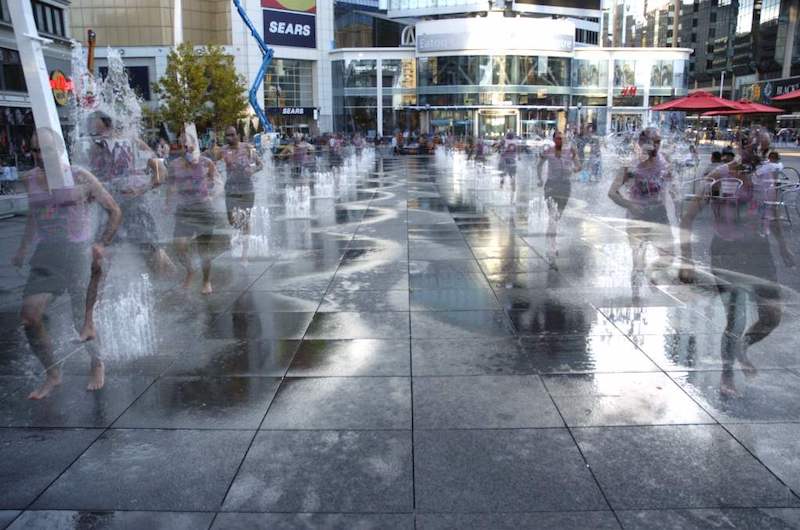The event planners’ guide to keeping cool during scorching heat waves
A blistering heat wave has gripped the Western United States, leaving a trail of suspected heat-related deaths and shattering temperature records. The scorching conditions have claimed lives ranging from retirees in Oregon to a young boy hiking in Phoenix, raising alarm bells among experts about the escalating impact of climate change.
“This is just a taste of what’s to come,” warned Joellen Russell, a climate scientist at the University of Arizona. “We’ve unleashed a cascade of extreme weather events – floods, droughts, wildfires, heat waves, hurricanes, thunderstorms – by pumping excess carbon dioxide into the atmosphere.”
In recent weeks, cities across the West have experienced unprecedented heat. Palm Springs, California, reached a historic high of 124 degrees Fahrenheit (51.1 Celsius) on July 5th, while Las Vegas sweltered under its highest-ever temperature of 120 degrees Fahrenheit (48.8 Celsius) just two days later.
Las Vegas endured a record-breaking seven consecutive days with temperatures of 115 degrees Fahrenheit (46.1 Celsius) or higher, nearly doubling the previous record. The city has seen at least 18 heat records broken since June 1st, underscoring the severity of this heat wave.
Related Reading: U.S. and Canadian Hospitality Communities Partner to Promote Sustainability
Death Valley, California, notorious for its extreme temperatures, tied its daily record of 129 degrees Fahrenheit (53.8 Celsius) on July 7th. Even Portland, Oregon, known for its mild climate, experienced five consecutive days of record-breaking highs, culminating in a scorching 104 degrees Fahrenheit (40 Celsius) on Tuesday.
To ensure attendee health and safety during a heat wave at trade shows and conferences, planners should implement the following measures:
Pre-Event Communication
Warn Attendees: Inform attendees well in advance about the expected heat wave, advising them to pack appropriate clothing and stay hydrated.
Health Tips: Provide tips on how to cope with heat, such as wearing loose-fitting, light-colored clothing, applying sunscreen, and drinking plenty of water.
Encourage Acclimatization: Advise attendees who are not accustomed to hot climates to arrive a few days early to acclimate to the weather.
Venue Selection and Setup
Air Conditioning: Ensure the venue is well-ventilated and air-conditioned. If outdoor areas are used, provide shaded areas and misting fans.
Water Stations: Set up multiple water stations throughout the venue, offering free, easily accessible drinking water.
Cooling Stations: Establish designated cooling stations with air conditioning, fans, and seating for attendees to rest and cool down.
Event Scheduling
Avoid Peak Heat Hours: Schedule outdoor activities and sessions during cooler parts of the day, such as early mornings or late afternoons.
Breaks and Rest Periods: Incorporate frequent breaks into the schedule to allow attendees to rest, hydrate, and cool down.
Flexibility: Allow for adjustments to the schedule if the heat becomes excessive, such as shortening outdoor activities or moving them indoors.
On-Site Resources
Medical Personnel: Have medical personnel on-site to address heat-related illnesses, such as heat exhaustion or heatstroke.
First Aid Kits: Ensure readily available first aid kits equipped with supplies for heat-related issues.
Electrolyte Drinks: Provide electrolyte drinks or powders to help attendees replenish lost minerals through sweat.
Additional Measures
Fans and Misting Systems: Install fans and misting systems in outdoor areas to provide relief from the heat.
Shade Structures: Set up tents, awnings, or umbrellas to provide shaded areas for attendees.
Light-Colored Flooring: If possible, use light-colored flooring in outdoor areas to reduce heat absorption.
Transportation: Arrange for air-conditioned transportation between venues and hotels to minimize exposure to the heat.
Communication During the Event
Regular Reminders: Frequently remind attendees to stay hydrated, seek shade, and utilize cooling stations.
Monitor Weather Conditions: Stay updated on weather forecasts and communicate any changes or potential risks to attendees.
Emergency Procedures: Clearly communicate emergency procedures and contact information for medical assistance in case of heat-related illnesses.
Any thoughts, opinions, or news? Please share them with me at vince@meetingsevents.com.
Photo: Creative Commons CC 3.0





